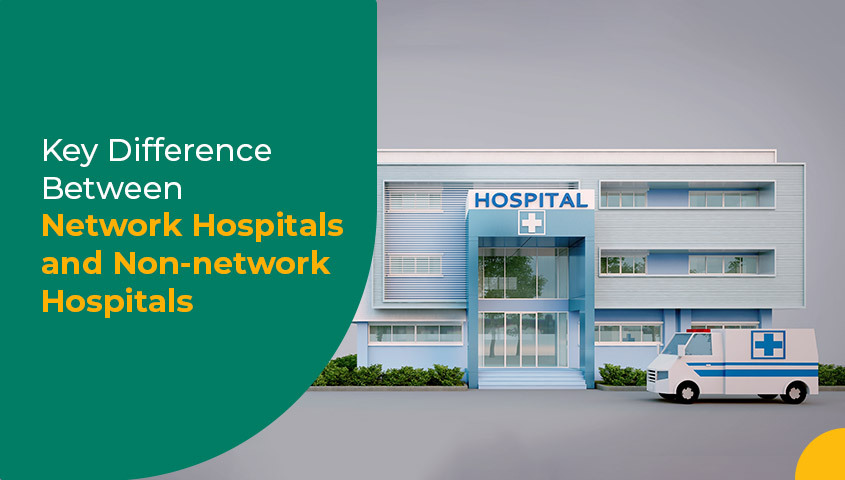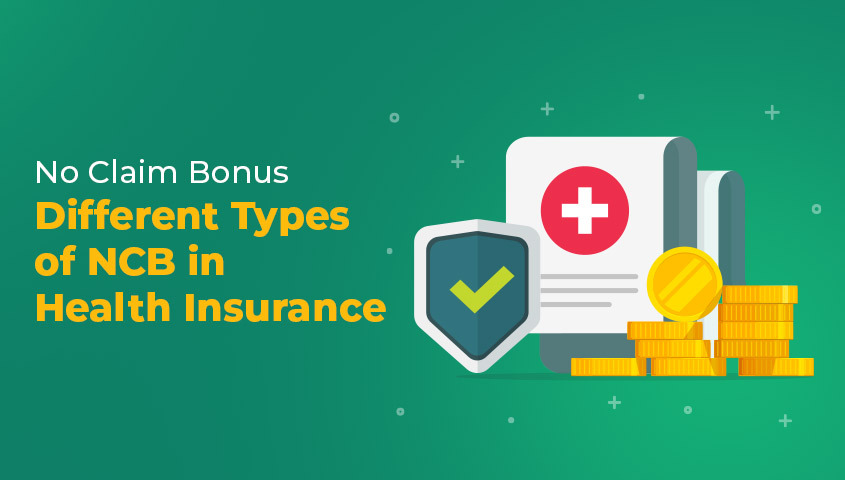
Health is wealth. It’s important to secure your health even before you start planning for your life goals. When you are young, you are fit and healthy. But, health calamities can strike anytime. At any age, you need to be prepared to combat health conditions and emergencies. Considering today’s rising rate of medical inflation, getting treatment for minor illnesses can also cost huge money. Medical emergencies can make one bankrupt by depleting all the savings. Hence, health insurance is the need of the hour.
The moment you realise the importance of health insurance, you must purchase it without any delay. When it comes to buying a health insurance policy, you are spoilt with choices available in the market. Knowing the types of health insurance plans can help you choose the right fit for you.
There are various types of health insurance plans available in India which caters to varying healthcare needs of individual and group. Let’s learn the major types of health insurance plans available in India for individuals.
- Mediclaim policyMediclaim policy is a type of health insurance plan that is designed to cover you and your family’s hospitalisation expenses (up to the coverage availed) in the event of any medical emergencies arising out of an accident or any specific illness. Mediclaim policies do not provide comprehensive coverage as the coverage includes majorly hospitalisation expenses only.
- Individual health insuranceIndividual health insurance plans provide protection to an individual against various health contingencies. Individual health insurance plans come with a cluster of facilities to provide comprehensive coverage to the policyholder. Main features of these policies include in-patient care expenses, pre and post hospitalisation expenses, domiciliary hospitalisation expenses, daycare procedures and organ donor expenses etc. Pre-existing illnesses and certain specific illnesses/treatments are covered after the completion of the waiting period. Most of the individual health plans are yearly renewable plans where you can claim up to the sum insured for the insured events during the policy period.For example, let’s say you have an individual health insurance policy with INR 5 lakhs coverage. In case, you utilise INR 1 lakh for hospitalisation, the remaining INR 4 lakhs can be claimed for any such medical emergencies till the end of the policy period.
- Family floater health insuranceFamily floater health insurance policy is an umbrella policy that covers the entire family under a single policy. All family members can be covered under the single sum insured (which can be utilised by any insured member) for various health contingencies such as in-patient hospitalisation, day-care procedures, domiciliary hospitalisation, organ donor expenses, pre and post hospitalisation etc. Pre-existing illnesses are covered after a specific waiting period. Family floater health insurance provides comprehensive coverage to the family at a relatively cost-effective rate. Generally, you can include yourself, spouse, dependent children and dependent parents under the plan. Some policies extend the coverage for siblings and parents-in-law also.
- Senior citizen health insuranceSenior citizen health insurance policy is a type of health insurance plan that is specially crafted for meeting the healthcare needs of senior citizens. Most of these plans come with an entry age of 60 years and above. The facilities offered by these plans include in-patient hospitalisation, pre and post hospitalisation, various daycare procedures and many more. Pre-existing illnesses are covered once the waiting period is over. Most of these policies come with a co-payment clause.
- Unit linked health planUnit linked health plan is a type of health insurance plan that comes with dual benefit of health insurance and investment. These plans help build a corpus that can be used for meeting future expenses that are not covered by health insurance policies.
- Group mediclaim planGroup mediclaim policies offer health insurance coverage to a group of people such as employees of an organisation and members of society etc. These policies not only provide tax benefits to the employer but also ensures the smooth running of the business with employee protection in the form of health insurance coverage.
- Critical illness planCritical illness plan is a type of health insurance plan that provides definite benefit. In these plans, the policy provides lump-sum benefits to the policyholder on the diagnosis of listed critical illnesses. A number of illnesses covered may vary from policy to policy. Following are some of the major illnesses covered by most of the plans:
- Stroke
- Cancer
- Major organ transplant
- Kidney failure
- First heart attack
- Paralysis
- Pulmonary arterial hypertension
- Multiple sclerosis
- Coronary artery bypass surgery
- Personal accident planPersonal accident plan provides a Lump Sum benefit to the owner-driver in case of accidental injury or death. Lump-sum benefit paid can be useful in meeting the income loss. Some of the health plans offer this as an additional optional rider also
- Hospitalisation cash benefit planHospitalisation cash benefit plan provides lump-sum benefits in case of hospitalisation for day-to-day expenses incurred relating to that. This benefit is apart from what is paid by the basic health insurance plan. Most of the health insurance plans offer hospitalisation cash benefit as an additional feature.
#6 Popular terms used in health insurance plans in India
Following are some of the popular terms used in health insurance plans in India
- Sum insured: It is the coverage amount or the maximum amount that the insurance company is liable to pay in case of any health eventualities during the policy period.
- Waiting period: Waiting period is defined period of time during which claims cannot be made for specific illnesses/treatments/ pre-existing medical conditions
- Sub-limits: Sub-limits are the upper limits placed by the health insurance policies on certain treatment procedures/ specific diseases.
- Deductible: Deductible is a fixed amount of admissible claim amount that needs to be paid by the policyholder before the insurer pays the claim amount.
- Free-look period: Free-look period is a time period given by the insurance company to cancel the health insurance policy without any penalty. Usually, 15 to 30 days period is given as a free look period. In case, you are not satisfied with the terms and conditions of the policy, you can cancel your policy within this timeframe by stating a valid reason for termination.
- Premium: Premium is the consideration that you pay to the insurance company at the time of purchase for the health insurance coverage that you are availing.
Benefits of availing health insurance plans
Health insurance is an important necessity for today’s world. There are a host of benefits offered by the health insurance plans. Following are some of the benefits:
- Cost-effective investments: With minor or major health issues, obtaining health insurance coverage is difficult. If you purchase health insurance plans when you are fit, young and healthy, you can get comprehensive coverage at a lower rate of premium. Treating any medical conditions/illnesses can burn a hole in your pocket. Having health insurance works like wonder as you can avail cashless treatment at an affordable amount of premium that you pay. Hence, health insurance is an essential cost.
- Makes quality treatment affordable: As most of the health insurance providers are tied up with best-in-quality hospitals across the nation, having health insurance plan helps you avail timely and quality treatment without having to incur the out-of-pocket cost.
- Coverage for pre-existing illnesses: Almost every health insurance policy provides coverage pre-existing health conditions or issues, but with a waiting period that varies from insurer to insurer.
- Peace of mind: As you can secure yourself and your family from any health contingencies through health insurance, having coverage gives you peace of mind. The insurance company provides the financial backup to the extent of your sum insured when you face health emergencies.
- Customisation: There is an exhaustive list of health insurance plans available in the market with numerous features. There are many plans that come with additional features and benefits which allows you to customise the plan based on your individual healthcare needs.
- Free-bees and extra benefits: There are many free-bees offered by health insurance plans such as complementary health check-up, option to avail second e-opinion of a medical condition and many more. There are also various additional optional riders offered by the health insurance plans such daily cash allowance and critical illness cover which helps you avail enhanced benefits.
- Savings benefit: Health insurance plans like unit-linked health plans offer savings benefit which helps you build the corpus for future health expenses.
- Saves tax: Investments made by you in health insurance plans saves tax in the following ways.
Description The maximum premium for self, spouse and dependent children Maximum premium for parents (dependent/non-dependent) Total deductions available under Section 80D of the IT Act All members of the family < 60 years of age INR. 25,000 INR. 25,000 INR. 50,000 Self, spouse and children < 60 years ageEither of the parents > 60 years age INR. 25,000 INR. 50,000 INR. 75,000 Self > 60 years ageSpouse and children < 60 years of age Parents > 60 years age
INR. 50,000 INR. 50,000 INR. 1,00,000
The process to apply for health insurance plans in India
You will be spoilt with choices when it comes to health insurance in India. Buying the health insurance plans online is the easiest thing which can be done within a few clicks of your computer mouse. Turtlemint offers various health insurance plans on the digital platform. Following are the simple steps to buy online on Turtlemint:
- Log on to Turtlemint home page
- Click on ‘health’ under the category of insurance
- Under the ‘health insurance’ category click on ‘buy new policy’
- Complete profile details such as gender, marital status, date of birth, income details and contact details
- Once you are done with creating your profile on Turtlemint page, all types of health insurance plans available will be displayed
- You can compare the health insurance plans offered by various insurance companies based on their features and cost.
- Once you zero down on the right plan, fill in the application with relevant details and proceed to make payment. It is that simple!
Checkout Best health insurance company in India
Documents required for buying health insurance plans
Following are the documents required to be submitted with the filled application:
- Proof of identity – PAN Card/Voter’s ID card/ Passport/Driving license
- Proof of address – Aadhaar card/Voter’s ID card/ latest telephone or electricity bills/Passport/Driving license
- Proof of age – Birth certificate/Passport/SSLC marks card
- Passport size photographs
- Pre-medical check-up report (if required)
Knowing the types of health insurance plans available, features offered by each plan helps in understanding your requirement better. With the complete understanding of the product, you can make a rational purchase decision to safeguard your well-being.
Frequently Asked Questions (FAQs)
- What is a pre-existing illness?Pre-existing illnesses are medical conditions that one has been suffering from/symptoms are diagnosed/ receiving medical treatment at the time of taking the health insurance policy. Today most of the health insurance policies provide coverage for pre-existing illnesses after the completion of certain waiting period which may vary from 12 months to 48 months.
- What is co-payment?Co-payment is a cost-sharing method in the health insurance policy in which the policyholder has to bear a certain specified percentage of claim amount/ fixed amount on particular illness or treatment before the insurance company pays for the claim. For example, the policy has 20% co-payment clause on any hospitalisation, then if the admissible claim amount is INR 1 lakh, the policyholder needs to pay INR 20,000 and the remaining INR 80,000 will be paid by the insurance company.
- What is health insurance portability?Health insurance portability is an ability to transfer the gained/accumulated benefits such as no claim bonus, waiting period served etc from an existing health insurer to another health insurer while switching. The reason for switching could be service concerns or cost or anything.
- What is the cumulative bonus in health insurance?Cumulative bonus is similar to that of the no claim bonus, but in cumulative bonus, the insurance company will progressively increase a certain percentage of the sum insured on every claim-free year.
- What is ‘cashless facility’ in health insurance?A cashless facility is a form of benefit payment system wherein the insurance company compensates the healthcare treatment expenses by making a direct settlement to a network hospital where the treatment is availed.
































